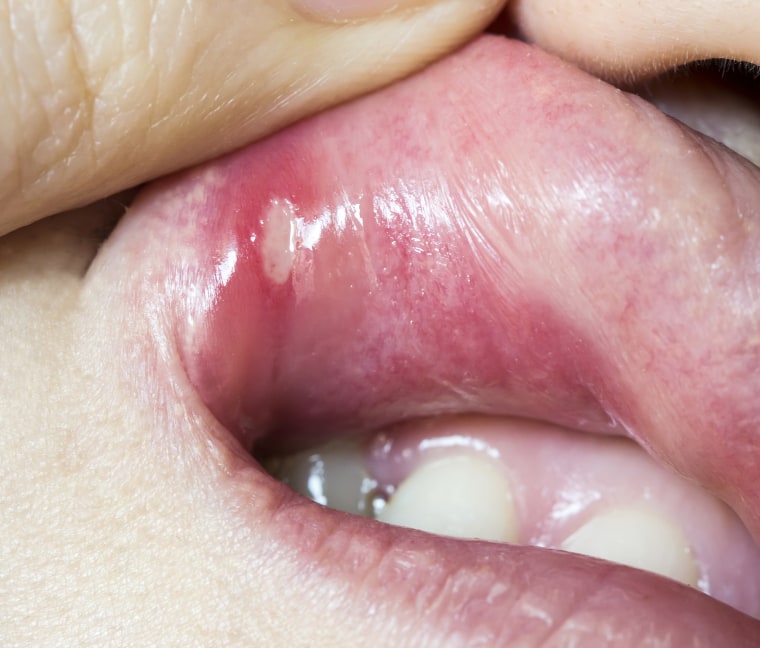Have you ever woken up to find an annoying red or white bump inside your mouth or on your tongue? It might just be a canker sore, also known as an apthous ulcer.
Here's more information about why and where canker sores can appear and what can be done about them.
What causes canker sores?
Canker sores and cold sores are not the same thing. While cold sores are a result of herpes simplex virus type 1 (which about half of all Americans have), canker sores are unrelated to oral herpes — and the good news is that these painful growths are only temporary.
Additionally, canker sores only appear on the inside of the mouth (sometimes on the throat, too), while cold sores usually appear on a person's lip.
“They tend to happen in kids, teens and young adults, usually between ages 10 and 20," Dr. Melissa Piliang, a dermatologist at the Cleveland Clinic, told TODAY. "And they happen more commonly in girls than boys. There are certain things that can bring them on or make them worse."
Hormonal changes as well as emotional stress can also trigger canker sores, Piliang said. Deficiencies in certain vitamins like B12, folate and iron are also linked to outbreaks.
More commonly, however, the culprit is an inner mouth injury or irritation.
“Some people get them when they get braces, when the edge of braces nicks the mouth," Dr. Thomas Rohrer, a Boston-based surgical dermatologist told TODAY. "Or when someone gets hit with a ball, and makes a bump in the mouth, canker sores can develop at the sight.”
Spicy or acidic foods (think lemons, pineapples, oranges and even apples) can also irritate the mouth and lead to a growth, Rohrer added.
In addition, research suggests genetics can play a role in how often you get these annoying bumps. They may start to appear first in childhood or adolescence.

Healing canker sores
There is no immediate way to get rid of canker sores, as doctors say there isn’t a cure. But if they are too bothersome, a topical pain-relieving cream such as Orajel is probably the best bet. If braces are causing irritation and canker sores, an orthodontist can supply wax strips that can be applied over the metal to prevent scraping.
Canker sores should go away within one to two weeks on their own. If they are causing more severe irritation, don't subside or keep re-appearing, a doctor can provide other options.
“If they’re bad and really bothering you, you can see a dermatologist who can give you a topical steroid, which can help it go away faster,” Piliang said.